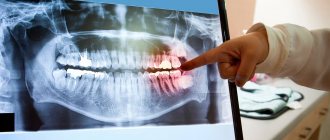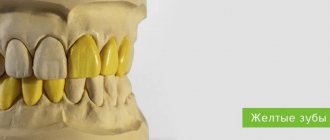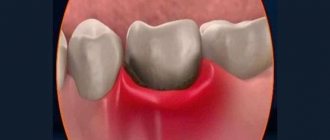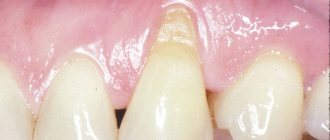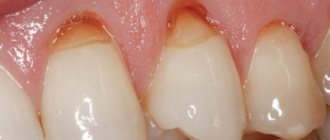Unfortunately, due to many reasons, such health problems occur that teeth simply crumble. This can occur at different ages, with baby teeth in children and permanent teeth in adults. What to do? Of course, you should see a doctor. Go to the dentist, and after the examination he can refer you to a specialist and advise you to undergo an examination.
Symptoms
It is difficult to miss such a fact when a tooth has crumbled. This usually occurs while eating, and a hard piece of enamel is felt in the mouth. Sometimes there are many small pieces at once. There is a feeling of panic. After all, we know from school that enamel is the hardest tissue in the body. Why does this happen, causing teeth to crumble and crack?
It happens that it all starts with stains on the enamel - this is a symptom that not everything is in order. And you need to make a visit to the dentist before the crown of the tooth collapses.
Features of nutrition with increased fragility of enamel
If the problem of teeth crumbling is purely dental, then most often it is a consequence of thinning and brittleness of the enamel. If you solve the problem solely aesthetically, your teeth will continue to deteriorate. The most correct option is to follow the nutritional recommendations, observing two basic conditions:
- Normalize the functioning of the gastrointestinal tract (for complete absorption of mineral salts).
- Ensure the supply of essential minerals and vitamins from food and more.
Make it a habit to eat 5-6 times a day, eating small portions of food each time. Avoid foods that are difficult to digest and harmful (including processed foods).
Try to regularly consume foods rich in:
- Phosphorus
: eggs; - high-quality natural cheeses;
- nuts;
- sesame;
- pumpkin and sunflower seeds;
- greenery;
- seafood;
- beef and veal.
:
- fish (in particular sardines and herring);
To ensure the necessary chemical reactions, it is very important to consume clean water regularly and in sufficient quantities. For an adult, the norm is 1.5-2 liters per day.
Reasons why teeth may crumble
The answer to the question of why teeth crumble in an adult or child can be not only in the field of dentistry, but also much deeper, and everything is reflected in the condition of the dentition.
Causes:
- poor
oral hygiene. And no matter how they say that everyone always talks about the importance of the procedure, it is so. An acidic environment has a destructive effect on enamel, making it fragile and vulnerable. Increased acidity is affected by plaque on the teeth, which is where bacteria and their waste products—destructive acid—accumulate; - untreated caries
and other diseases, when there is a lot of carious tissue and the walls of the tooth become thinner. As a result, the tooth began to crumble; - mechanical causes
: trauma, super-hard food - nuts, chewing candy, etc., bad habits - chewing pencils, objects, opening a bottle with your teeth. As a result, the tooth cracked and broke; - changes in
food temperature. Very hot suddenly gives way to cold. The enamel does not withstand, cracks appear; - lack of vitamins
and minerals: calcium, vitamin D (which promotes the absorption of calcium), fluorine, phosphorus; - metabolic disease
. It is worth visiting an endocrinologist; - hormonal imbalance
. These are not only diseases associated with hormonal levels and fluctuations, but also special periods in a person’s life - adolescence and old age, menopause, pregnancy; - heredity
. Genetic predisposition to weak enamel; - stress
; - malocclusion
- uneven load on the lower and upper teeth; - Bruxism
is involuntary grinding of teeth during the day or at night.
Video from our expert about how and why teeth decay:
Teeth quickly decay due to chronic diseases, diseases of the gastrointestinal tract and endocrine glands. And crumbling teeth is a signal that needs to be responded to urgently.
Prevention of tooth decay in adults
Careful care will help keep your teeth healthy. It consists of a number of factors, including concerns about nutrition and lifestyle.
In addition, it is important to purchase:
- toothbrush, soft or medium hard. Do not forget that the brush should be changed regularly;
- threads and rinsing gels;
- toothpaste selected after consultation with a dentist.
Bad habits are worth fighting. This applies not only to smoking or alcohol, but also to clicking teeth, chewing crackers, pistachios and other hard foods.
If involuntary teeth grinding occurs, you will need the help of a neurologist. In most cases, the solution to the problem is mouthguards and sedatives (they are used only as prescribed by a doctor).
Try to enrich your diet with seafood, fresh vegetables, cottage cheese, and fruits. For rinsing (and it is better to do it after each meal), use special products. And don’t forget about the importance of preventive examination: you need to visit the dentist once every six months.
Number of views 11,095
Teeth began to crumble during pregnancy
For the development of the fetus, calcium is necessary, which the child receives from the body of the expectant mother. A woman experiences a deficiency if she does not eat well and does not take it additionally in the form of supplements or mineral complexes. Teeth may be destroyed, which occurs quite often in this “interesting position.”
The next factor influencing the weakness of dental tissue may be a hormonal surge during pregnancy and the nervousness of the mother.
Necessary:
- take care of a sufficient supply of calcium
in the body, because it also affects the development of the skeletal system (including the rudiments of teeth) of the unborn child. Eat a balanced diet, if necessary, take active supplements with calcium and vitamin D prescribed by your doctor; - don’t be nervous,
and walk more - be observed
during pregnancy by a gynecologist, dentist, or other doctors, if indicated.
Teeth can crumble not only during pregnancy, but also during lactation. With mother's milk, calcium is transferred to the baby.
Content:
- Reasons why teeth crumble 1.1. Caries 1.2. Fluorosis 1.3. Erosion of teeth 1.4. Bruxism 1.5. Genetic predisposition 1.6. Unsatisfactory working conditions and poor environment
- What to do if your teeth start to crumble badly
- If there is nothing left of the tooth
Many people face the problem of decaying teeth. At some point, a piece of the unit breaks off, causing its appearance to change significantly. Below we will tell you why this happens and what to do if the tooth crumbles.
How to get rid of the problem, solution methods
The dentist will decide how to stop tooth decay after identifying the cause. If treatment by other doctors is necessary, then in parallel it is already possible to begin the restoration of dental units.
Dental restoration methods:
- filling.
Installing a filling in place of the missing piece of tissue. If the carious cavity is large enough and the walls are fragile, then an inlay with a composite material may be indicated; - veneers.
If there is a chip or crack in the front teeth of the frontal area, a thin ceramic overlay will correct the situation, hiding all the defects; - crowns
When the crown of a tooth is severely damaged, the doctor may recommend installing an artificial one from the selected material. Most often these are metal ceramics, ceramics, zirconium dioxide. It is important what condition the gums are in; - remineralization.
Restoring the normal balance of vitamins in the enamel structure. A special composition is applied to the surface of the teeth for several minutes. The tissue is saturated, enriched with calcium, fluoride, becomes stronger and can even remove caries at the chalk spot stage; - fluoridation.
Fluoride-containing pastes nourish the enamel. Fluorine is responsible for crystalline calcium compounds. Fluoride varnish seals dentinal tubules, strengthening teeth; - taking active
calcium and vitamin D
The ecological situation of the region of residence is one of the causes of dental health pathologies. The quality of air, water and food is far from ideal. Replenish the deficiency with complex supplements, spend your weekends in nature. Love organic farm products.
How to fix crumbling teeth
Once the cause is determined, treatment begins. If the condition of the teeth worsens due to diseases occurring in the body, the teeth are restored last - after other affected areas have been treated.
If the source of the problem lies in the oral cavity, the doctor may suggest several treatment options.
- Filling.
Caries or injuries lead to chips of varying sizes. They are removed with a filling.
- Crowns, veneers.
In case of serious damage to teeth, when filling does not help, it is recommended to install artificial crowns and veneers - porcelain or ceramic overlays.
- Mineralization.
A strengthening procedure during which applications containing calcium and fluoride are applied to damaged teeth.
- Fluoride coating of teeth.
The procedure also strengthens the enamel, but special fluoride-containing pastes are used.
- Taking multivitamins and nutritional supplements.
Installing veneers (onlays) is one of the ways to correct dental defects
What to do if the tooth is completely crumbled
The crown part of the tooth has completely crumbled, what should I do? You must make an appointment with a doctor at a dental clinic within two days. After the x-ray, it will be clear whether the root is preserved, what condition it is in, and whether removal is necessary. Then possible recovery options:
- prosthetics (stump inlays, pins, crowns and bridges);
- implantation (implantation of a titanium artificial root into bone tissue followed by installation of a crown).
In any case, modern techniques are sufficient to compensate for any loss of teeth.
Diagnosis and identification of the cause
Teeth crumbling is a consequence, but only a specialist can determine what the root cause is. It will take one or more appointments (depending on whether additional tests are required) to understand whether dental or some other reason led to the appearance of crumbling.
The diagnostic examination takes place in several stages:
- examination of the patient’s oral cavity to collect a detailed medical history;
- if the reason is not dental, then a recommendation is given to visit a doctor according to indications, for example, an endocrinologist, therapist, gynecologist, etc.;
- a referral is issued for blood tests (to identify possible pathologies, such as anemia, hormonal disorders, etc.).
Often, x-rays, ultrasound and other tests may be required. The more thoroughly information about your health status is collected, the higher the chance that the cause of tooth decay will be eliminated and it will be possible to save those that are not yet affected.
You might be interested in:
Online consultation
Dental restoration
Treatment of caries
Cervical caries
Brief conclusions
If you notice that your teeth are crumbling, but do not experience pain, this is not a reason to delay going to the dentist. Get ready for the fact that the problem that has arisen will have to be solved comprehensively, turning to doctors of various profiles and solving not only dental, but also other health problems. If your teeth are crumbling, the causes can only be determined and eliminated by a specialist.
And most importantly, do not neglect preventive measures that will help maintain the integrity of your teeth and healthy gums.
Treatment Options
Therapy should begin after the cause has been identified and eliminated. Treatment should be general (at the body level) and local (in the oral cavity). General - may include: eliminating bad habits, sanitizing the body and oral cavity, taking vitamins, proper nutrition. Local treatment will depend on the severity of the pathology and the number of lost teeth. Therapy can be carried out in the following ways:
- Install a filling - if the tooth begins to deteriorate or part of it is missing;
- Make a restoration to restore appearance and color;
- Install a crown when a significant part of the hard tissue is lost;
- Make a prosthesis after root loss;
- If teeth crumble and fall out, they can be restored using implantation.
Basic methods of dental restoration
Modern dentistry offers several solutions for restoring damaged teeth.
- Filling. If a premolar or molar is less than 50% destroyed, a filling can be placed. Carious cavities are cleaned and dried. Large fillings are installed on anchors or fiberglass pins.
- Prosthetics. If the tooth is severely damaged, it is treated, ground and a crown is installed - metal-ceramic, ceramic or zirconium dioxide. In case of deep caries, it may be necessary to clean the canals and install a stump tab to fix the crown.
If the natural tooth cannot be saved, it should be removed and an appointment for implantation should be made. You can place an implant with a temporary crown immediately after extraction. There is also a classic implantation option - an artificial structure is implanted 2-3 months after tooth extraction. It is important to know that after extraction of a molar or premolar, bone tissue rapidly decreases, so you should not delay implantation for long, since osteoplasty may be required after a year.
Dental roots affected by caries are a dangerous source of infection in the body.
When the carious process has destroyed not only the crown, but also the roots of the tooth, it is necessary to part with them as quickly as possible. Removing the root of a decayed tooth cannot be called a simple surgical procedure, but modern anesthetics and professional skills allow the doctor to carry it out quickly and without significant pain. If this is not done, rotting roots will create a serious health problem for the patient.
- Pathogenic microflora will spread to neighboring teeth.
- There will be a persistent unpleasant odor from the mouth.
- A cyst or granuloma may form around the root tip. Pus from the overgrown local formation will sooner or later release into the gum tissue - a flux will form, which will already capture the entire upper or lower jaw and “swell” the cheek.
- A persistent focus of infection will cause a significant decrease in immunity.
When treating gumboil, the patient's gums are first cut under anesthesia to allow the drainage of pus and to disinfect the source of infection. Without this manipulation, it is impossible to remove the tooth root, since it is impossible to inject an anesthetic into the gum tissue filled with pus. When sending a patient home, the dentist cannot even be sure that he will return to remove the root. Unfortunately, many avoid surgical intervention, which means they will soon face a relapse of the disease.
How to provide first aid for severe pain
Sometimes teeth decay slowly and without pain. The process can go unnoticed. But there are cases when tissues are destroyed abruptly. This threatens to expose the pulp. Due to nerve irritation, severe pain appears, which prevents you from sleeping or eating. To alleviate the condition before visiting a doctor, it is worth clearing the cavity of food debris and rinsing your mouth with a soda-salt solution at room temperature.
You should also take an analgesic. If possible, it is better to consult a doctor regarding its choice. You should not take painkillers just before your visit to the dentist’s office, as it can hide the clinical picture.
